
Manfred Mann were an English rock band, formed in London and active between 1962 and 1969. The group were named after their keyboardist Manfred Mann, who later led the successful 1970s group Manfred Mann's Earth Band. The band had two different lead vocalists, Paul Jones from 1962 to 1966 and Mike d'Abo from 1966 to 1969.

Manfred Mann's Earth Band are an English rock band formed by South African musician Manfred Mann. Their hits include covers of Bruce Springsteen's "For You", "Blinded by the Light" and "Spirit in the Night". After forming in 1971 and with a short hiatus in the late 1980s/early 1990s, the Earth Band continues to perform and tour.

"Quinn the Eskimo (The Mighty Quinn)" is a folk-rock song written and first recorded by Bob Dylan in 1967 during the Basement Tapes sessions. The song's first release was in January 1968 as "Mighty Quinn" in a version by the British band Manfred Mann, which became a great success. It has been recorded by a number of performers, often under the "Mighty Quinn" title.

Messin' is a rock album released in 1973 by Manfred Mann's Earth Band.
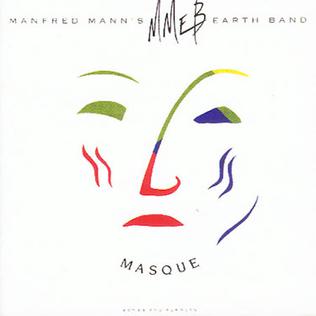
Masque is the thirteenth studio album by Manfred Mann's Earth Band, released in 1987 on Virgin Records. Chris Thompson had left the band after their previous album Criminal Tango and the band was now at three permanent members. After this album the Earth Band name was retired until 1991.

Mann Alive is a live double album released in 1998 by Manfred Mann's Earth Band.
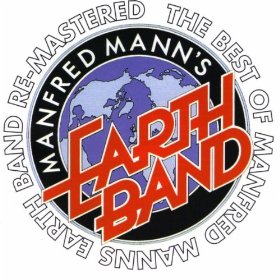
The Best Of Manfred Mann's Earth Band Re-Mastered is a compilation album released in 1999 by Manfred Mann's Earth Band. The title of track 4 on the compilation, "Blinded by the Light" is errantly printed as "Blinded by the Night".

Soft Vengeance is an album released in 1996 by Manfred Mann's Earth Band.
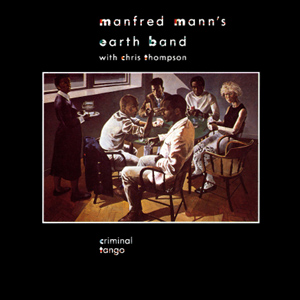
Criminal Tango is the twelfth studio album released in 1986 by Manfred Mann's Earth Band with Chris Thompson. Founding guitarist/vocalist Mick Rogers returned to the band for this album and is still an active member. The new bassist Steve Kinch joined the band only when parts of the album were already recorded. Kinch therefore shared the bass parts on this album with bassists Durban Betancourt-Laverde and John Giblin. This is their first album for the Virgin Records label after eleven years with Bronze Records.
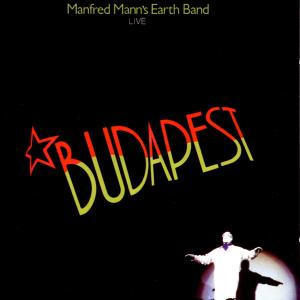
Budapest Live is an album released in 1984 by Manfred Mann's Earth Band. The album was recorded on the "Somewhere in Europe" tour in 1983 in support of the "Somewhere in Afrika" album, and despite its title, also featured recordings from the Dominion Theatre in London. It was the final Earth Band album to appear on the Bronze label and also the last album recorded with Steve Waller and Matt Irving.
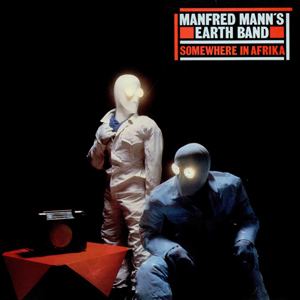
Somewhere in Afrika is the eleventh album by Manfred Mann's Earth Band, released in 1982. It is their last studio album recorded for their long time record label Bronze Records. They would record their next studio album, Criminal Tango for Virgin Records. Bassist Matt Irving joined the band, replacing Pat King for this album.

Angel Station is the ninth album released by Manfred Mann's Earth Band, released in 1979. Several line-up changes were made for this album. Ex-Wings drummer Geoff Britton replaced founding drummer Chris Slade and Steve Waller replaced guitarist Dave Flett. Britton left the band soon after due to illness, and was replaced by John Lingwood. Also in the line-up were Pat King on bass guitar from the then current line-up and Chris Thompson.
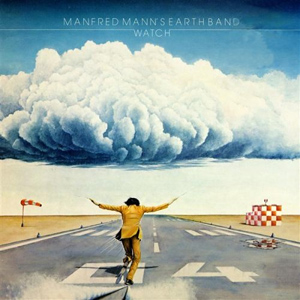
Watch is the eighth album by Manfred Mann's Earth Band, a studio album with two live tracks released in 1978. It is the first album recorded with new bassist Pat King, and the final album for both guitarist Dave Flett and original drummer Chris Slade. In West Germany, it stayed 69 weeks in the charts, receiving platinum status in 1981.

The Roaring Silence is the seventh studio album by English rock band Manfred Mann's Earth Band. It was released on 27 August 1976, by Bronze Records in the UK and by Warner Bros. Records in the US. Like other Earth Band albums, this includes material by other composers. "Blinded by the Light", which reached number one on the Billboard Hot 100, is a cover version of a song by Bruce Springsteen; "Questions" is based on the main theme of Franz Schubert's Impromptu in G flat Major (1827); "Starbird" takes its theme from Igor Stravinsky's ballet The Firebird (1910); and "The Road to Babylon" is based on the canon "By the Waters of Babylon" by Philip Hayes. Lyrics and melody of the intro of "The Road to Babylon" is taken from the song "Babylon" from Don McLean's second album "American Pie", released in 1971.

Nightingales & Bombers is the sixth studio album released by Manfred Mann's Earth Band in 1975.
The title of this album was inspired by a recording made in Surrey, England during the Second World War, by an ornithologist intending to record nightingales. The bombers flew over at the same time and were recorded by accident. The recording has been incorporated in 'As Above, So Below'.

Glorified Magnified is a rock album released in 1972 by Manfred Mann's Earth Band.
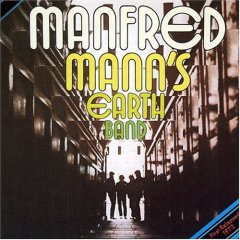
Manfred Mann's Earth Band is the eponymous debut studio album by English rock band Manfred Mann's Earth Band, released on 24 January 1972 by Polydor Records.
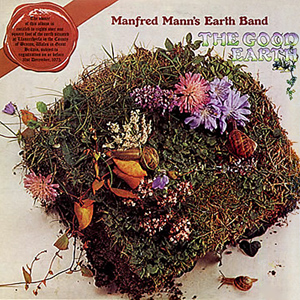
The Good Earth is the fifth studio album released by Manfred Mann's Earth Band in 1974. Its opening song is a cover of "Give Me the Good Earth", written by Gary Wright and released on his 1971 solo album Footprint, while tracks 2 and 3 were originally by Australian progressive rock band Spectrum.

Solar Fire is the fourth studio album by Manfred Mann's Earth Band, released in 1973. It spent 15 weeks on the Billboard 200 charts, peaking at number 96 on 11 May 1974. It was initially intended to be a full adaptation of The Planets Suite but Gustav Holst's heir, who had previously given permission to the adaptation of "Jupiter, the Bringer of Jollity" in the hit single "Joybringer", didn't allow this to happen, so the band made their own "cosmic" album using mostly original themes, although the most well known song is the Bob Dylan composition "Father of Day, Father of Night", which is in the Earth Band's live set to this day and remains a popular song on rock radio. "Pluto the Dog" and the two-part "Saturn, Lord of the Ring/Mercury, the Winged Messenger" are instrumentals, and "Earth the Circle Part 2" features only two lines of sung vocals. The album is often considered the peak of the early Earth Band line-up and, for a lot of progressive rock reviewers, the pinnacle of Mann's career in general.
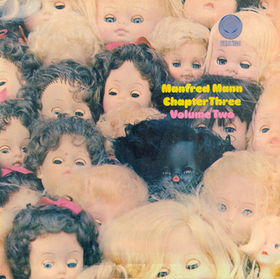
Manfred Mann Chapter Three Volume Two is the second and final album released by Manfred Mann Chapter Three. It was released in 1970 on Vertigo. Mann's next album, and most of his future albums, would be released under the name Manfred Mann's Earth Band.




















